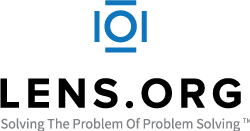PRODEKTIF: Pengolahan Sampah Organik Konsep Pentahelix Menuju Ekonomi Desa Berkelanjutan
DOI:
https://doi.org/10.58878/sutasoma.v3i1.344Keywords:
: Economic acceleration, , Village, PRODEKTIF, SDGsAbstract
The Central Statistics Agency (BPS) recorded Indonesia's poverty rate at 26.36 million people in 2022, an increase of 0.04 million compared to the previous year. Poverty is an issue that must be addressed to achieve sustainable development (SDGs), particularly SDG 1, which aims to eradicate poverty. Organic waste is a potential resource in rural areas that can be economically utilized, creating business opportunities and jobs at the village level. This study explores PRODEKTIF (Productive Village Program), focusing on optimizing organic waste management through the Pentahelix concept to accelerate sustainable rural economic development. The research employs a qualitative approach using case study methods involving active participation from village communities, local governments, businesses, educational institutions, and community organizations in program development. The results show that increasing community productivity through the PRODEKTIF program promotes sustainable rural economic development by implementing the Pentahelix concept, which engages five key stakeholders: government, businesses, educational institutions, community organizations, and the community itself. The findings of this study are expected to serve as a reference for governments, educational institutions, and communities in developing similar programs focused on organic waste management and rural economic empowerment.
Downloads
Published
How to Cite
Issue
Section
License
Copyright (c) 2024 Hendri Irawan, Tutik Wijayanti, Satrio Alpen Pradanna, Leni Anggraeni, Alvi Iswari

This work is licensed under a Creative Commons Attribution-NonCommercial-ShareAlike 4.0 International License.
Authors who publish their manuscripts in Jurnal Sutasoma agree to the following terms:
1. Copyright Ownership Authors retain the copyright to their work. Authors grant Jurnal Sutasoma the right of first publication for the work.
2. Publication License All articles published in Jurnal Sutasoma are licensed under the Creative Commons Attribution-NonCommercial-ShareAlike 4.0 International License (CC BY-NC-SA).
This license permits anyone to:
-
Share: Copy and redistribute the material in any medium or format.
-
Adapt: Remix, transform, and build upon the material.
Under the following terms and conditions:
-
Attribution (BY): You must give appropriate credit (citing the author and journal), provide a link to the license, and indicate if changes were made.
-
NonCommercial (NC): You may not use the material for commercial purposes. Written permission from the author is required for any commercial use.
-
ShareAlike (SA): If you remix, transform, or build upon the material, you must distribute your contributions under the same license as the original.
3. Author's Warranties By submitting a manuscript, the author warrants that:
-
The manuscript is their original work and does not infringe upon any third-party copyrights.
-
The manuscript has not been published previously and is not under consideration for publication elsewhere.
-
The author has obtained the necessary permissions to reproduce any copyrighted material from other sources (if applicable).


 TEMPLATE JURNAL
TEMPLATE JURNAL





